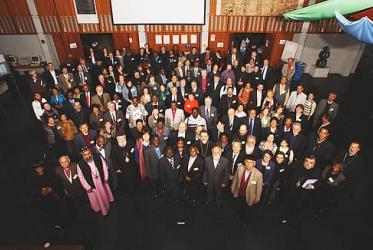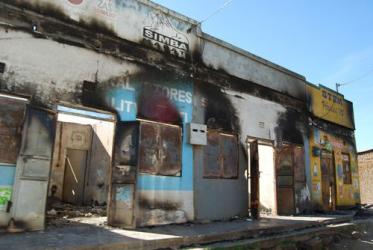Displaying 701 - 720 of 999
WCC central committee: Making a difference together
21 February 2008
Three statements pay attention to elections
20 February 2008
Kobia sees changing landscape
14 February 2008
Eminent Ecumenical Persons on solidarity visit to Burundi
04 February 2008
WCC general secretary confident about Christian unity progress
25 January 2008
Amid raging violence, Philippine churches build peace
29 November 2007
Canadian theologian Gibaut to lead Faith and Order
26 November 2007







